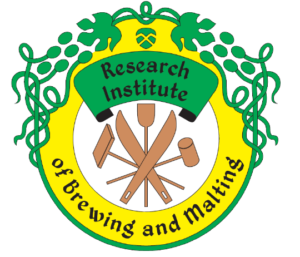Research Institute of Brewing and Malting
Research Institute of Brewing and Malting (RIBM) is a specialized institution dedicated to the scientific study and technological advancement of brewing and malting. The institute focuses on various aspects of beer production, from the selection and processing of raw materials like barley, hops, and water, to the fermentation process, packaging, and quality control. The primary goal of such institutes is to improve the efficiency, sustainability, and quality of beer and malt products through research and innovation.
Overview[edit | edit source]
The Research Institute of Brewing and Malting plays a crucial role in the beer industry, offering valuable insights and technological solutions to breweries and malt houses. These institutions often work closely with industry partners, academic bodies, and governmental agencies to address current challenges and future needs of the brewing and malting sectors. Their research encompasses a wide range of topics, including yeast genetics, enzyme technology, flavor chemistry, and environmental sustainability.
Research Areas[edit | edit source]
The institute's research can be broadly categorized into several key areas:
- Raw Material Quality and Processing: Studies focus on the selection, genetics, and modification of barley and hops to enhance yield, disease resistance, and brewing quality. This area also explores optimal malting conditions to improve malt quality and efficiency.
- Fermentation Science: Research in this area investigates yeast strains, fermentation processes, and the impact of different brewing conditions on flavor, aroma, and alcohol content.
- Flavor Chemistry and Sensory Analysis: This research aims to understand the chemical composition of beer and its sensory attributes, identifying factors that influence taste, aroma, and overall consumer preference.
- Packaging and Shelf Life: Studies examine packaging materials and technologies to extend the shelf life of beer without compromising quality.
- Sustainability and Environmental Impact: Research focuses on reducing the environmental footprint of brewing and malting operations through water and energy conservation, waste reduction, and sustainable sourcing of raw materials.
Education and Training[edit | edit source]
In addition to research, the Research Institute of Brewing and Malting often provides educational programs and training courses for industry professionals, students, and enthusiasts. These programs cover a wide range of topics, from basic brewing principles to advanced technological and scientific aspects of beer production.
Collaboration and Services[edit | edit source]
The institute collaborates with breweries, equipment manufacturers, and other stakeholders to develop new technologies and improve existing processes. It also offers a variety of services, including quality testing, product development, and consultancy.
Conclusion[edit | edit source]
The Research Institute of Brewing and Malting is an essential component of the global beer industry, driving innovation and excellence in brewing and malting science. Through its comprehensive research, education, and collaboration efforts, the institute contributes significantly to the production of high-quality beer and malt products, meeting the evolving tastes and expectations of consumers worldwide.
Navigation: Wellness - Encyclopedia - Health topics - Disease Index - Drugs - World Directory - Gray's Anatomy - Keto diet - Recipes
Search WikiMD
Ad.Tired of being Overweight? Try W8MD's physician weight loss program.
Semaglutide (Ozempic / Wegovy and Tirzepatide (Mounjaro / Zepbound) available.
Advertise on WikiMD
WikiMD is not a substitute for professional medical advice. See full disclaimer.
Credits:Most images are courtesy of Wikimedia commons, and templates Wikipedia, licensed under CC BY SA or similar.Contributors: Prab R. Tumpati, MD

